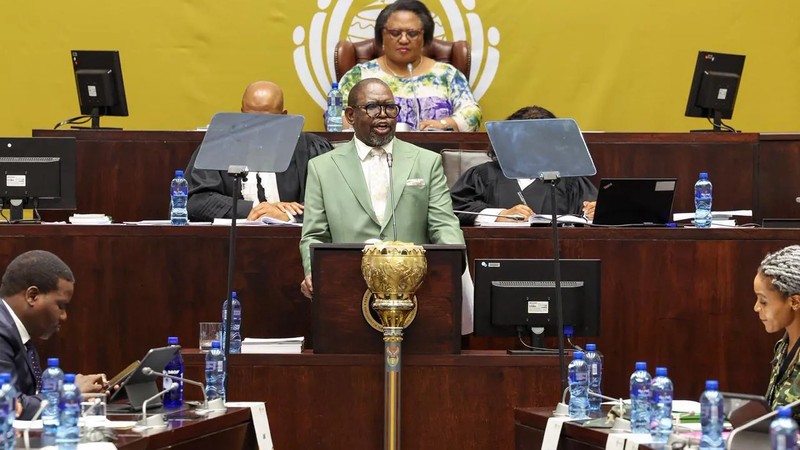The National Assembly adopted the revised and proposed fiscal framework for 2025 on Thursday, marking a significant step towards the anticipated passing of the Medium Term Budget Policy Statement (MTBPS) scheduled for January 2026.
This development, achieved with a decisive majority, highlights the ongoing efforts of the Government of National Unity (GNU) to stabilise South Africa’s economic landscape amid pressing challenges.
The framework received 216 votes in favour against 78 objections from opposition parties, primarily the EFF and the MK Party.
Finance Minister Enoch Godongwana tabled the MTBPS earlier this month, revealing a revised gross tax revenue projection for the 2025/26 fiscal year that has been increased by R19.7 billion.
Godongwana said the R19.3 billion revenue overrun and lower-than-expected borrowing costs will help to accommodate a proposed R15.8 billion increase in non-interest spending, while the budget deficit narrows by R8.2 billion.
He also announced a new inflation target of 3%, with a one percentage point tolerance band.
Speaking during the debate, MK Party MP Des van Rooyen said the fiscal framework was inadequate in terms of addressing the dire unemployment and poverty rates plaguing South Africa.
Van Rooyen highlighted that the expanded unemployment rate now approaches a staggering 43%, with over 18 million South Africans living below the poverty line.
“With this revised and proposed fiscal framework, the Minister of Finance has once again chosen to trap our people in the same failed trajectory,” Van Rooyen stated, emphasising the need for more sustainable growth solutions.
He complained that the GDP growth has been below 1% and Godongwana now wanted the country to magically leap towards 3% in the medium term.
“Our view is that these proposals fail to deliver the scale of growth necessary… South Africans remain trapped in the crisis of unemployment, poverty, and inequality, and nothing in this fiscal framework provides an escape,” added Van Rooyen.
Meanwhile, DA MP Wendy Alexander said the budget offered a more mixed perspective on the budget, describing it as a blend of hope and missing elements that require diligent monitoring.
“We are slowly climbing out of the fiscal hole of debt that our previous governments have dug this country into, but our journey remains difficult, and the prices of the past mistakes remain with us,” Alexander said.
She also said her party supported the debt stabilisation because South Africans cannot afford the interest costs to grow any larger.
“There is other good news, more reason for hope. SARS has collected more than R20 billion expected this year. This shows that when you build capacity into our institutions, good results will follow,” said Alexander, adding that the discovery of nearly 9,000 ghost workers on the government payroll was what was needed to eliminate wastage.
EFF MP Omphile Maotwe lamented the apparent lack of rigorous parliamentary oversight regarding the MTBPS.
“What we have witnessed in the Joint Finance Committees and later the Standing Committee on Finance, dealing with this MTBPS, was not an oversight,” Maotwe said.
She said the tabled MTBPS pleases foreign investors and the IMF.
“The committee responsible for interrogating the fiscal direction of this country treated the process as a minor exercise,” she said.
ANC MP Charles Sekoati said the 2025 MTBPS was tabled when South Africa led the presidency of G20, demonstrating the illustrious commitment of the country in advancing the African agenda.
He said the ANC has advocated an increase in funding for SARS in order to enhance the capabilities of the taxman.
“This reality, of course, was the importance of strengthening revenue collection, but also to lower the risk associated with a high debt position. The ANC supports the revised fiscal framework and revenue proposal, which is implicitly incurred on attaining a primary budget surplus to stabilise debt without crowding out government expenditure,” Sekoati said.
Responding to the debate, Godongwana said the good story was that South Africa was removed from greylisting.
He also said the MTBPS was universally accepted and the effect of which has been the ability to again upgrade ratings.
